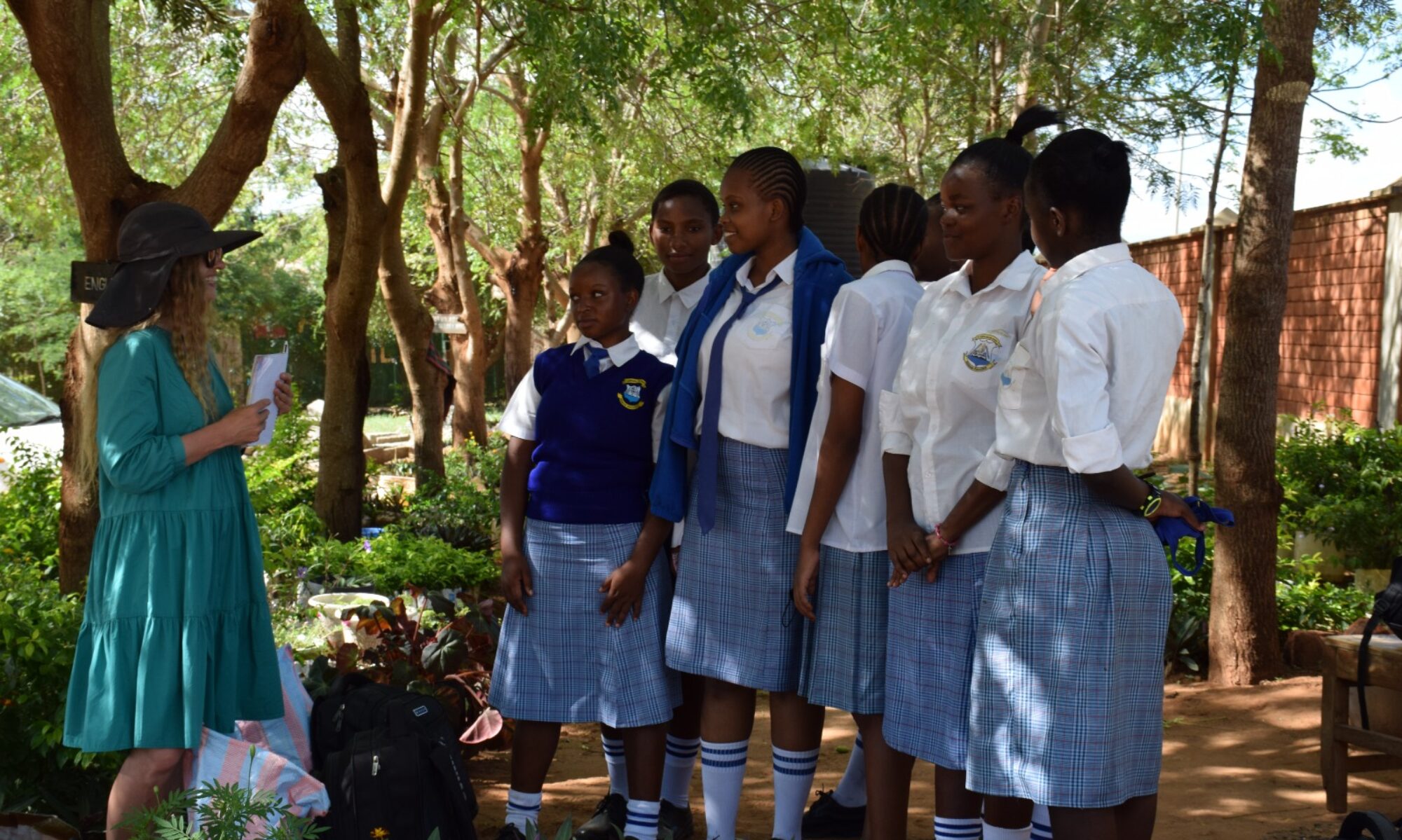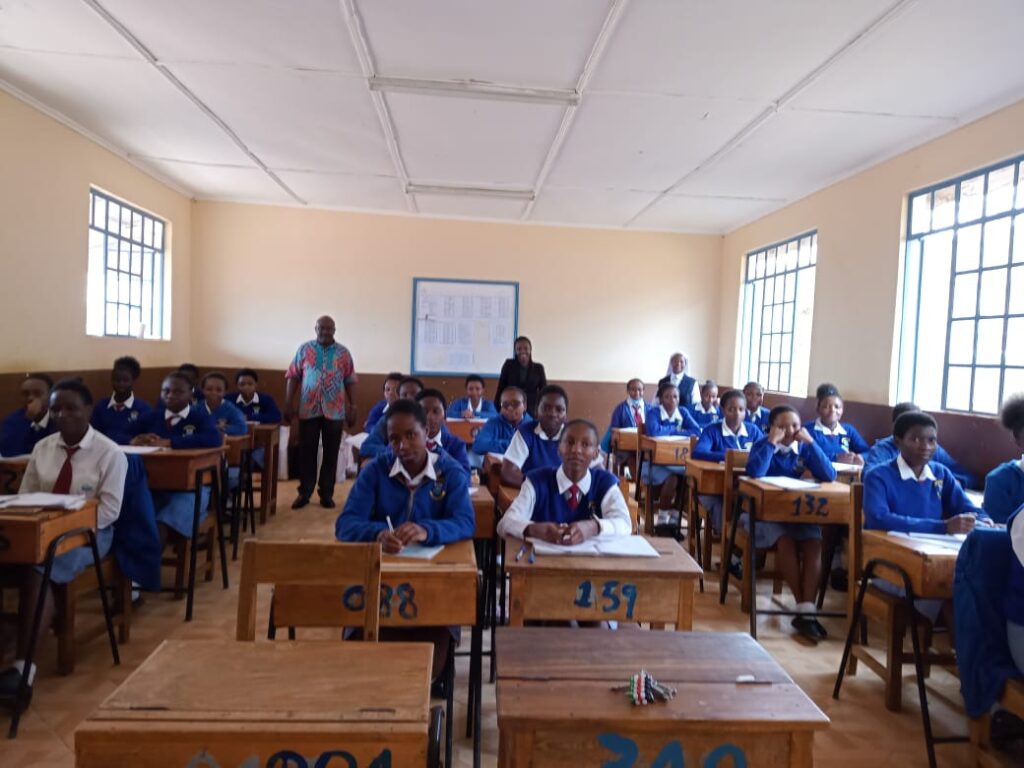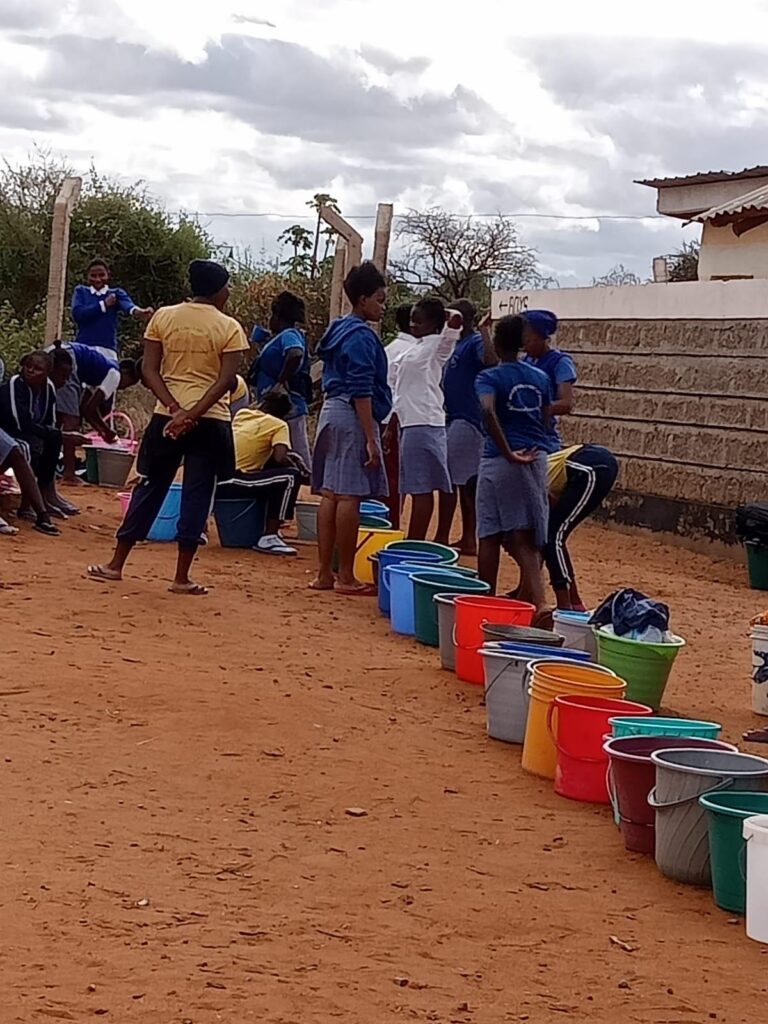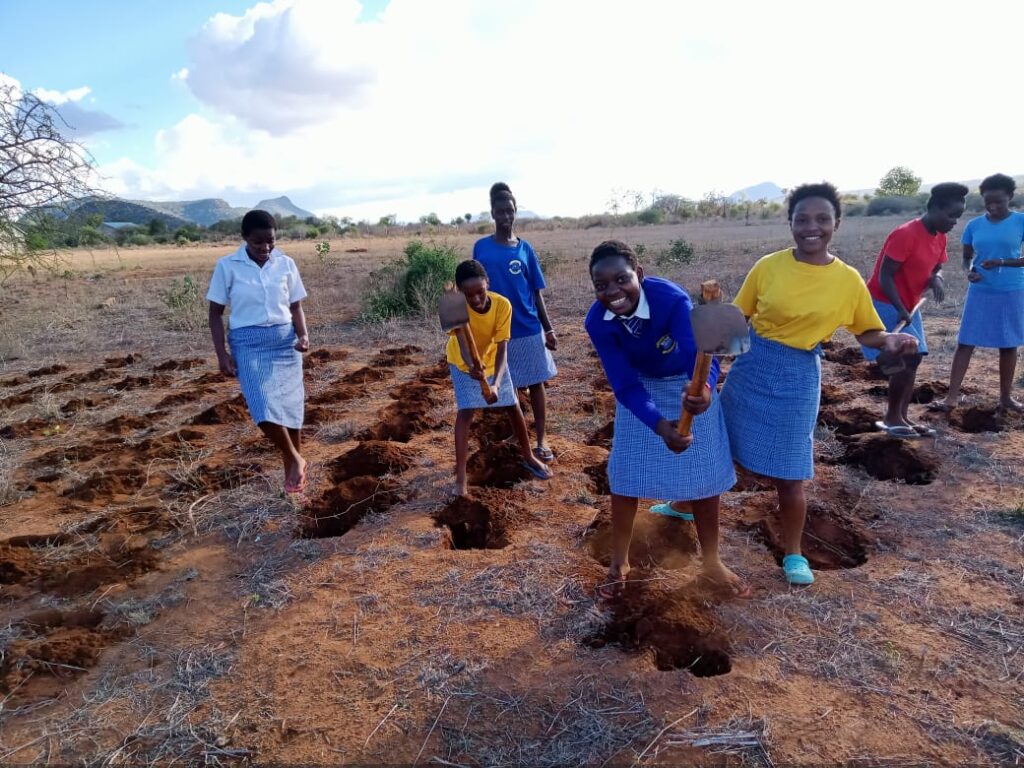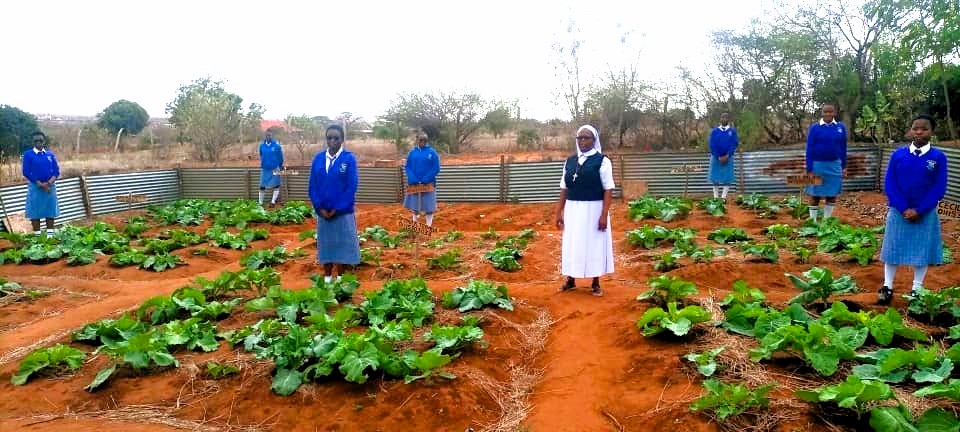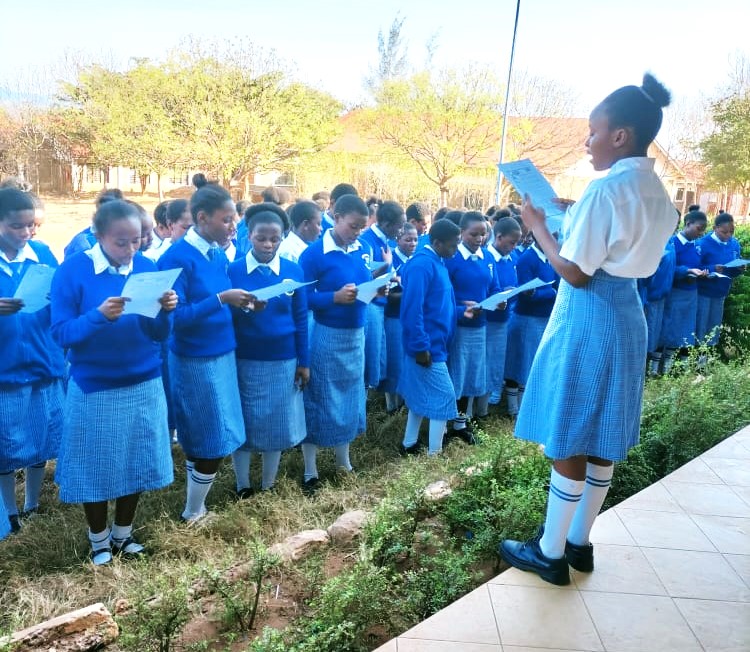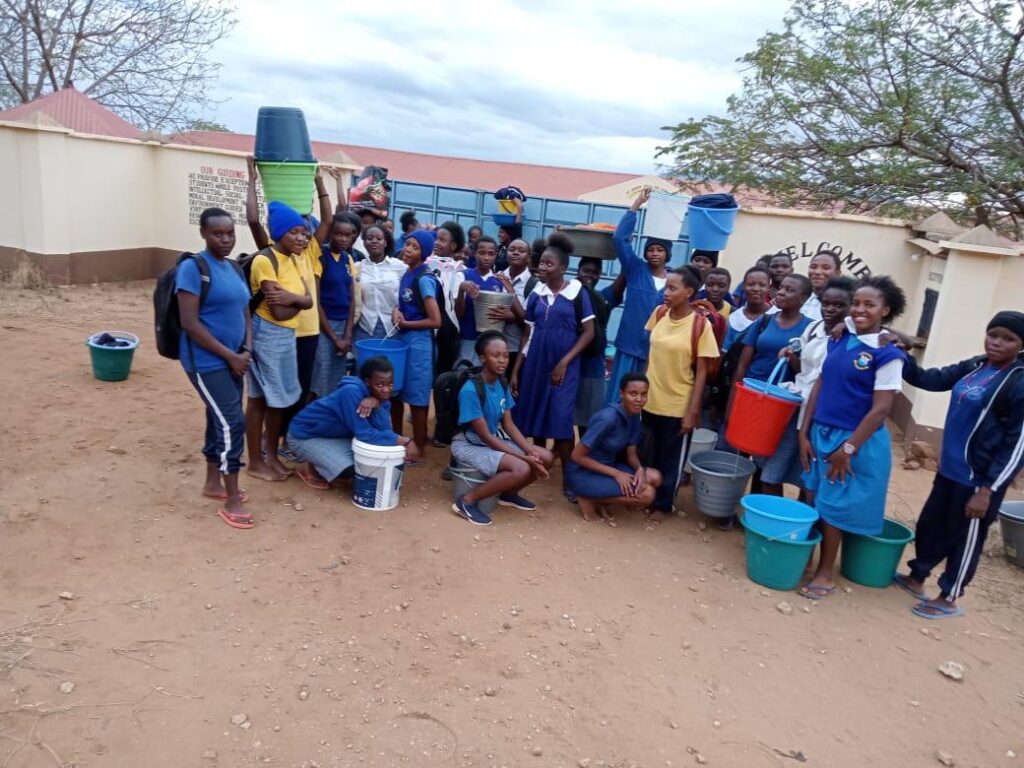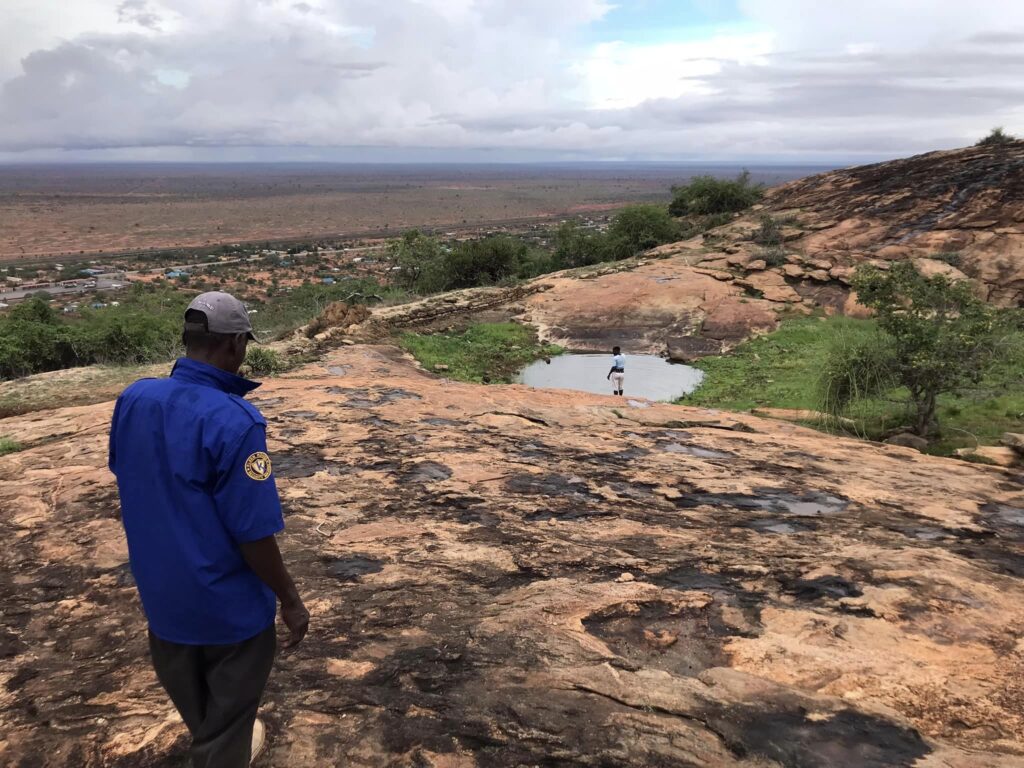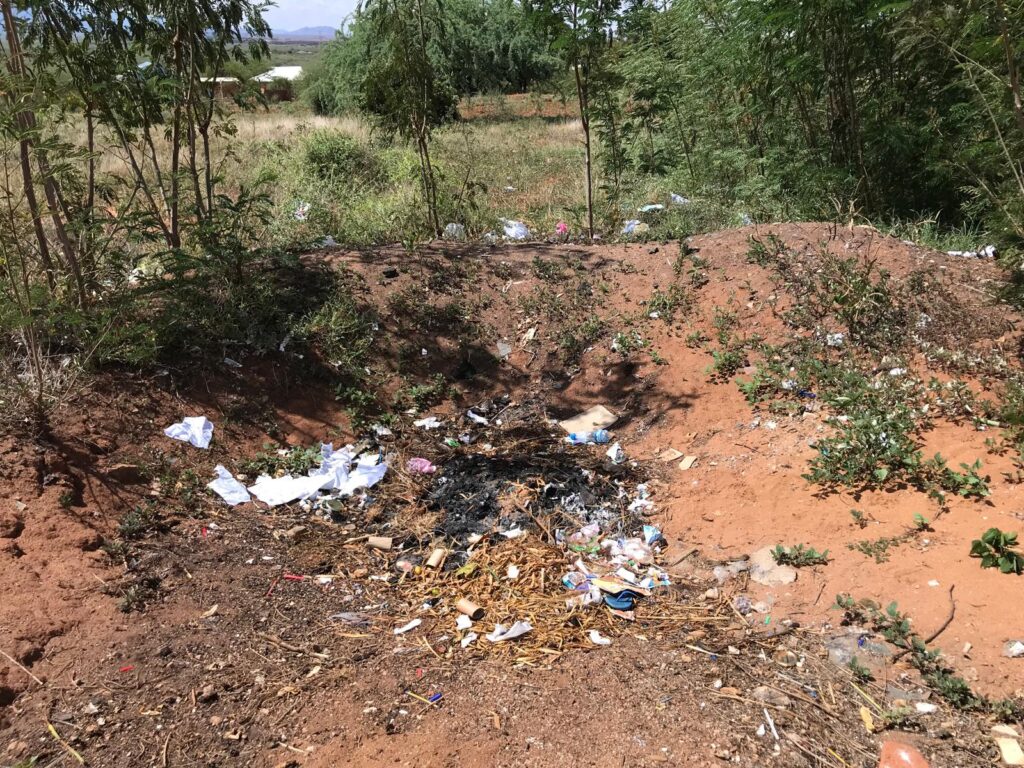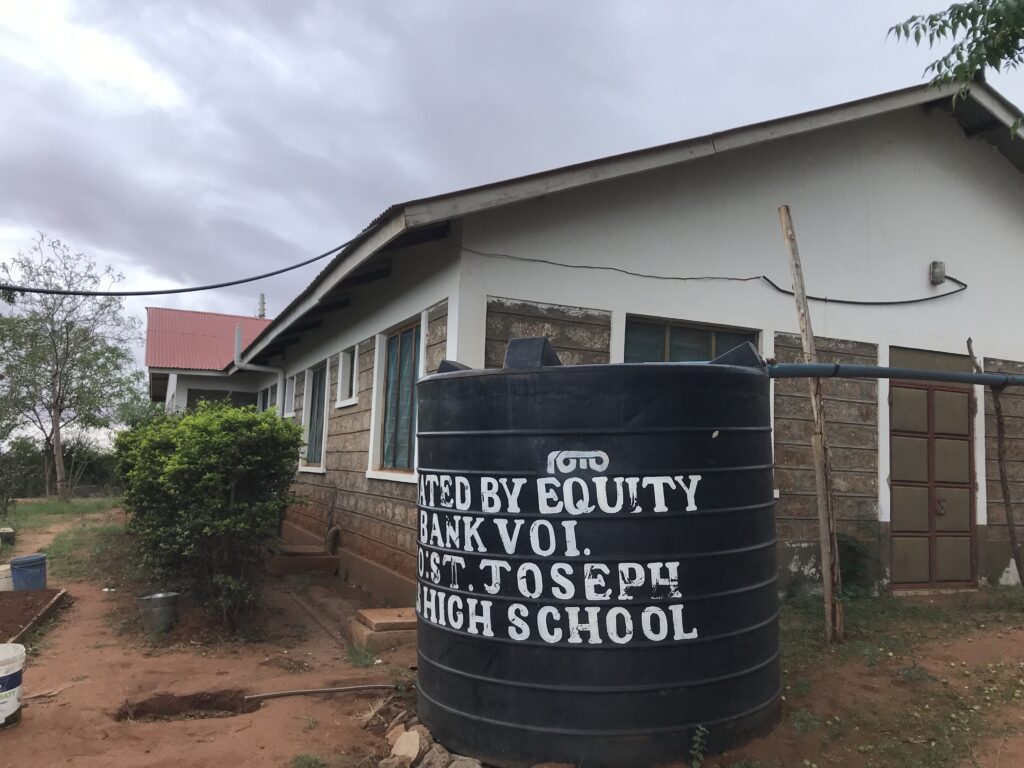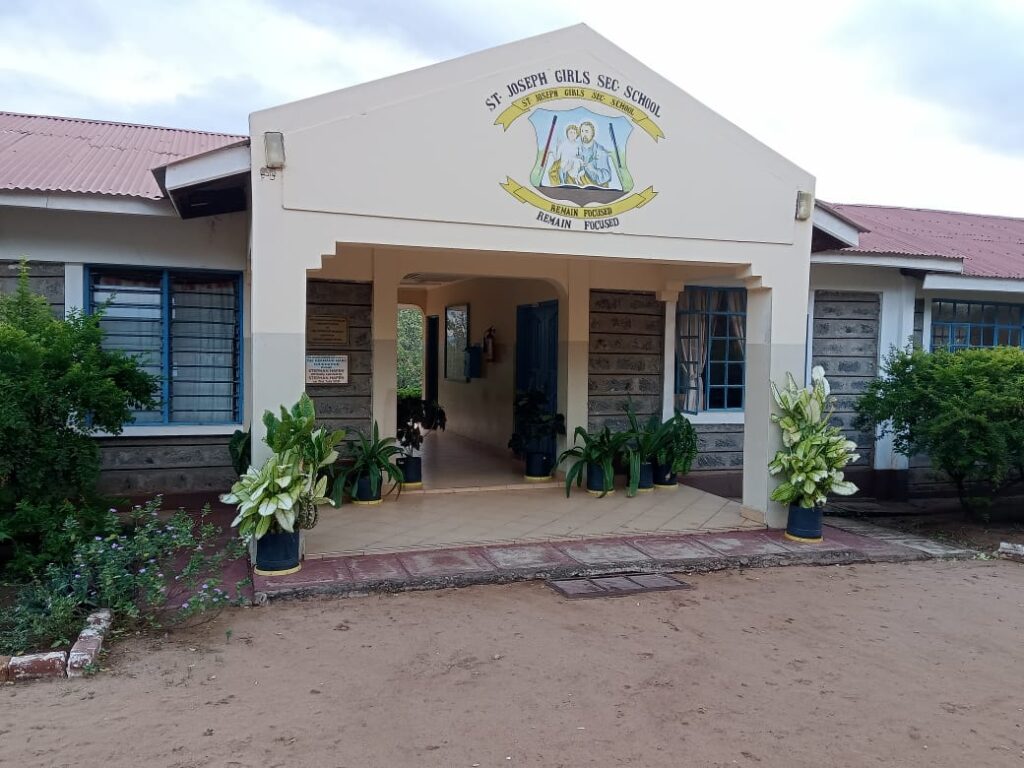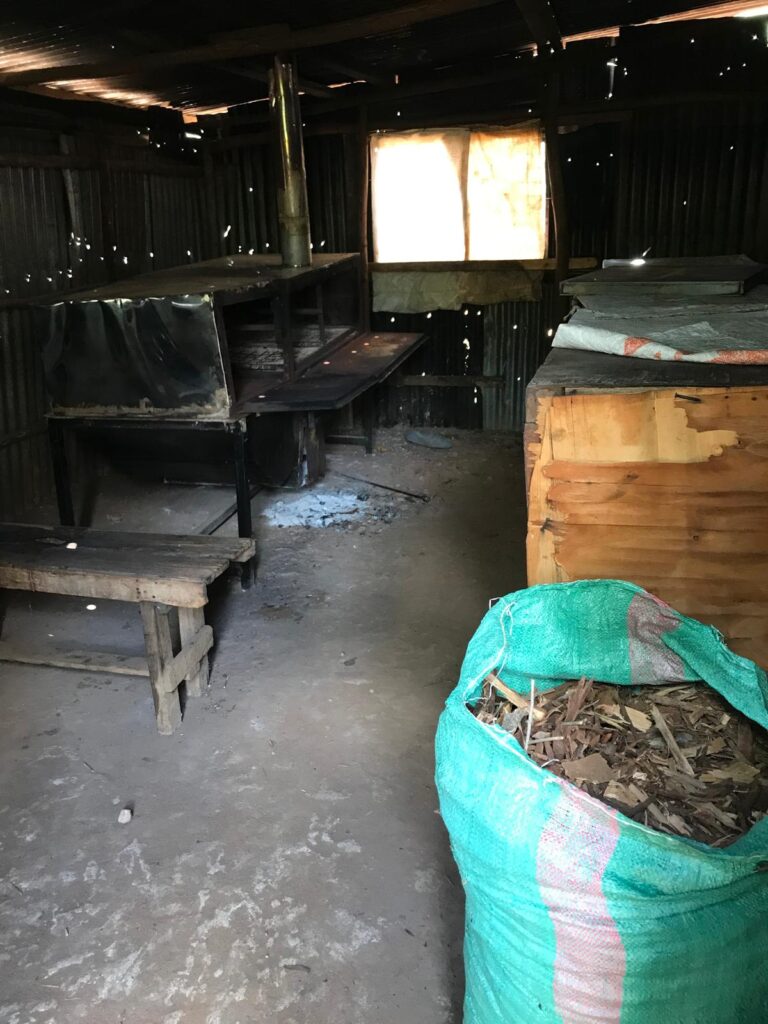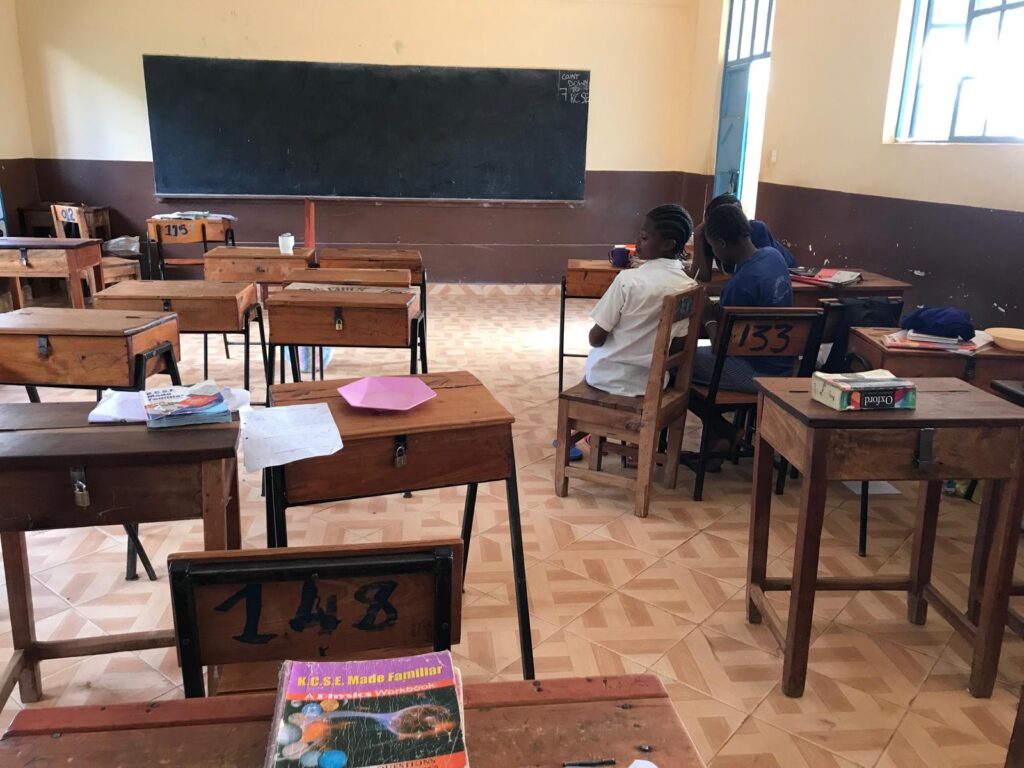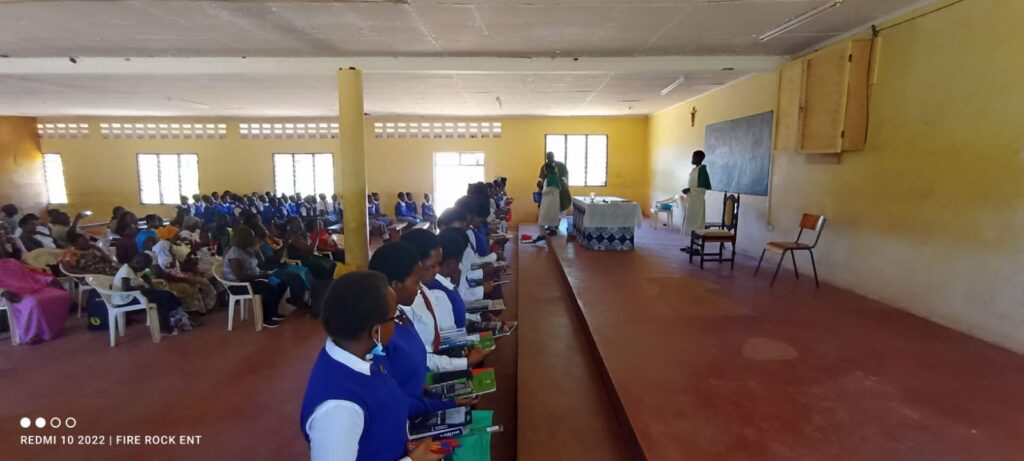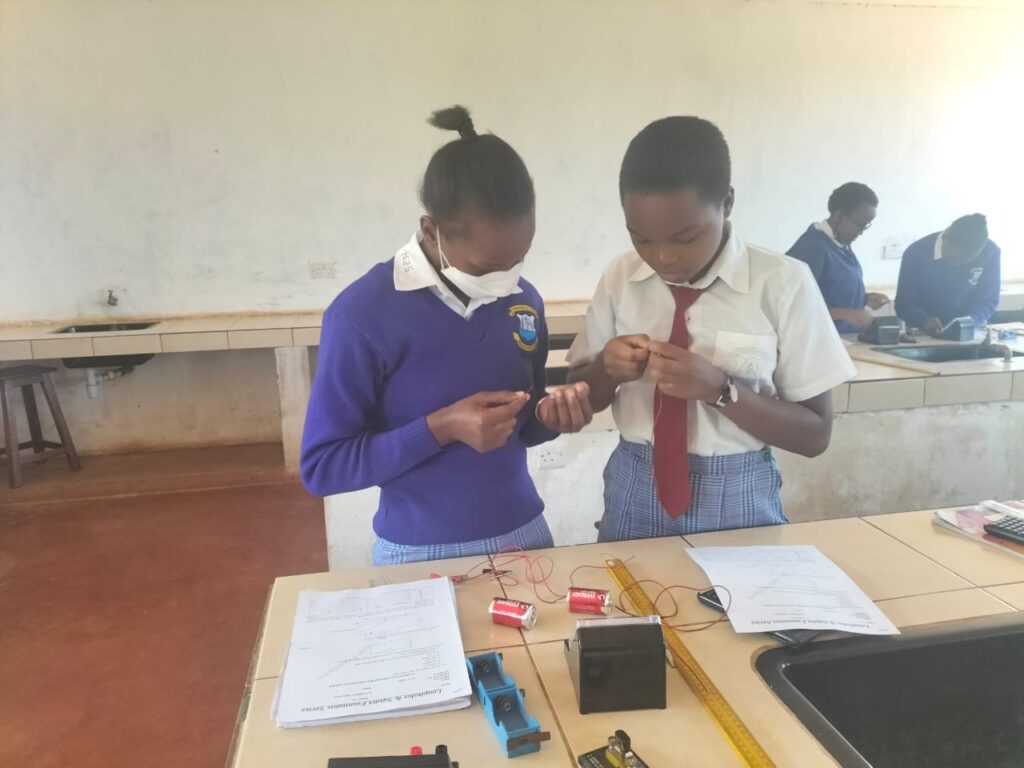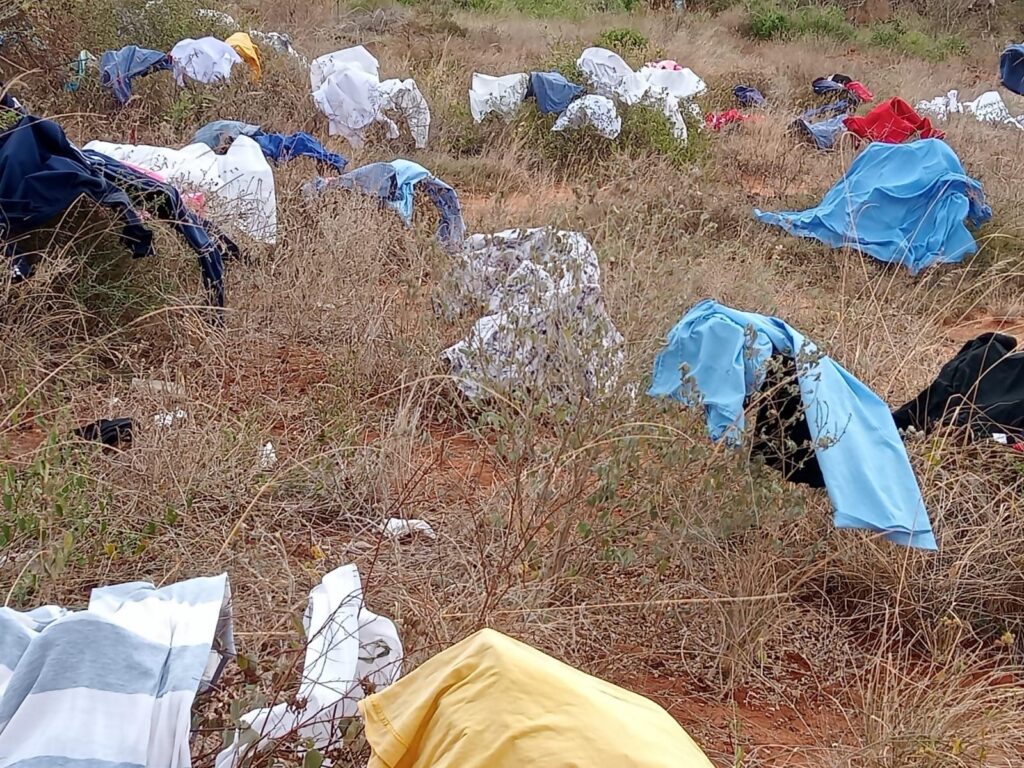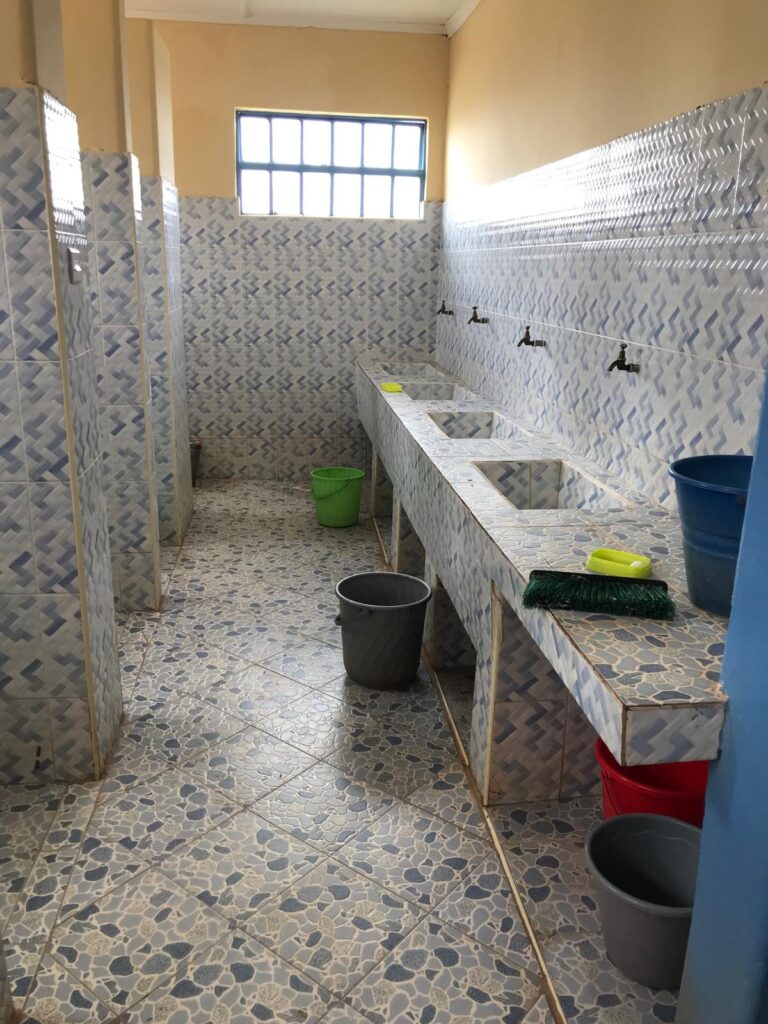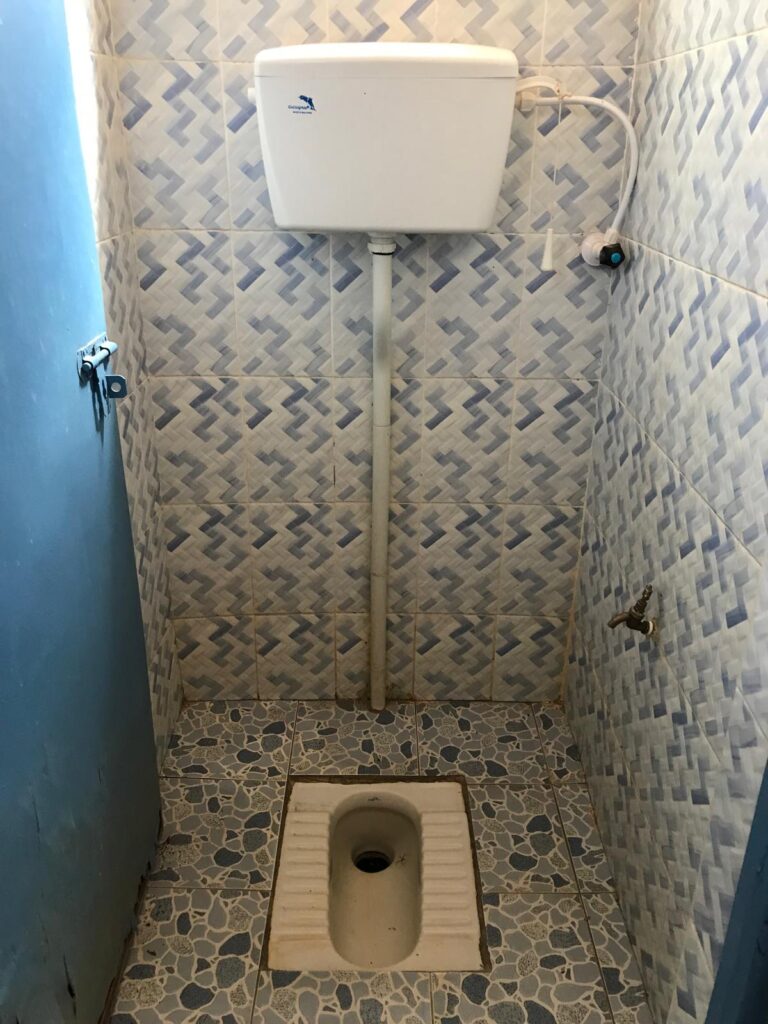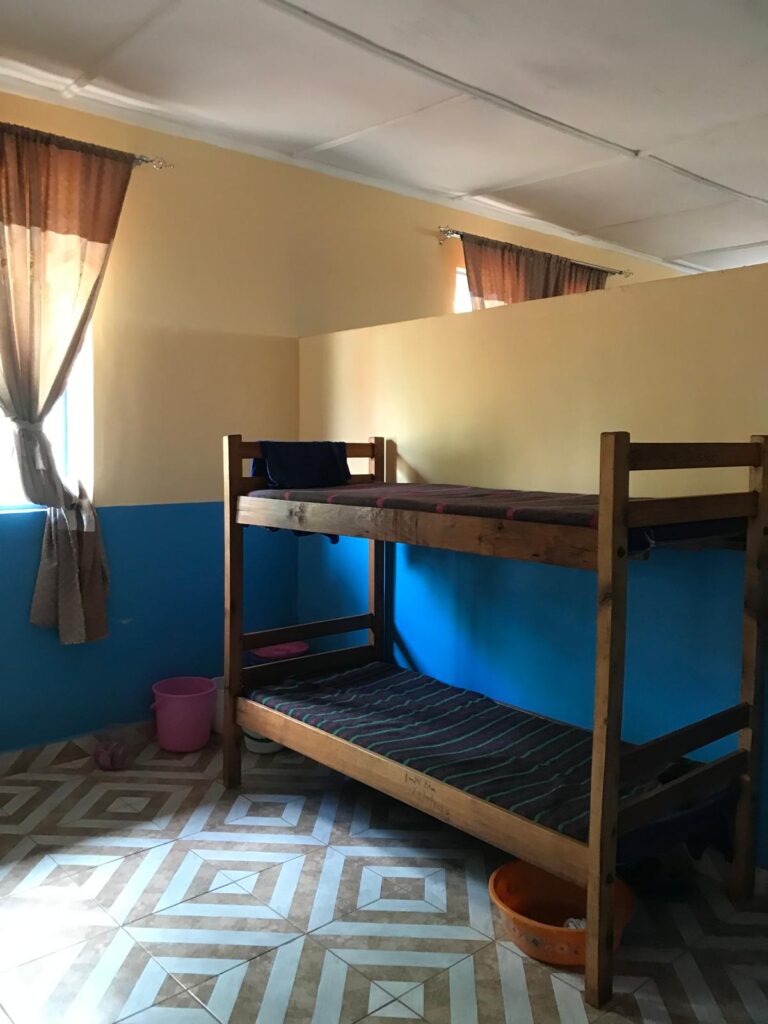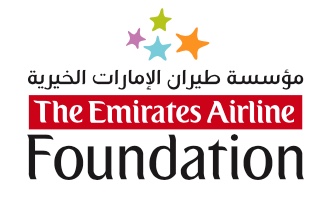St. Joseph’s Girls Secondary School empowers 150 female students in rural Kenya through education. The school faced critical water shortages and unsafe drinking conditions.
Floods, droughts, and E. coli contamination put health and learning at risk.
We introduced sustainable solutions to secure safe, reliable water access.
The project supports education, health, and long-term resilience for the girls.
OVERVIEW
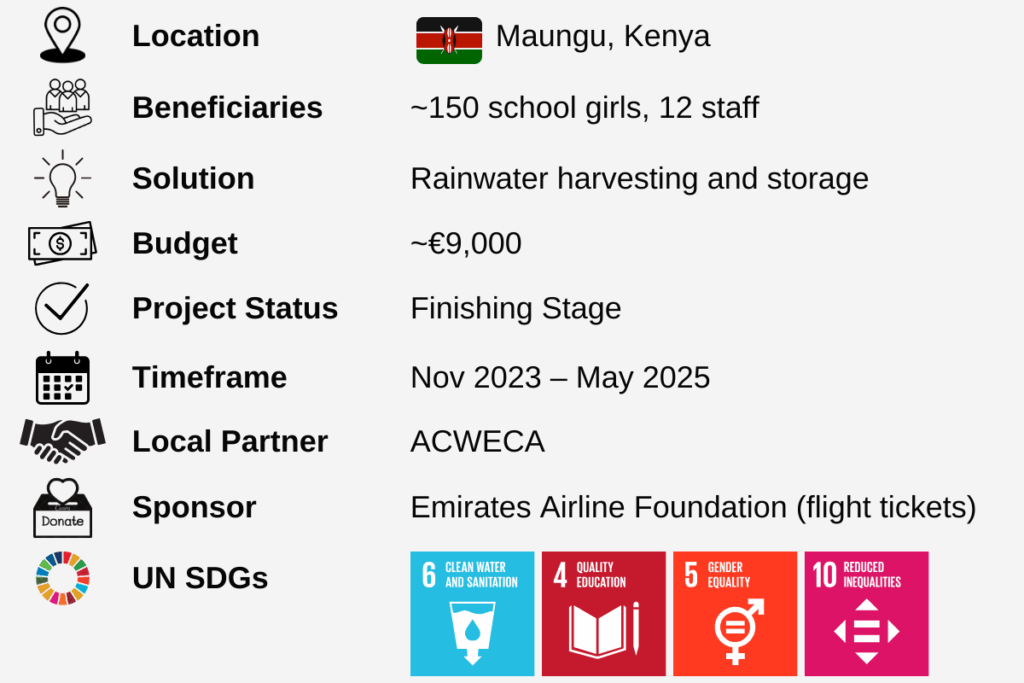
BACKGROUND
St. Joseph Girls Secondary School, founded in 2011 by the sisters of St. Joseph of the Catholic Archdiocese of Mombasa, is dedicated to empowering young women through education
Despite providing a nurturing environment for 150 residents, the school faces significant challenges, including a persistent water shortage and poor waste management.
Water tests revealed E. coli, Coliform bacteria, and high lead content in the tap water, consumed without boiling. Flooding during the rainy season contaminates water sources and overflows latrines, while dry periods lead to severe water scarcity. Waste is burned without separation, and cooking with wood fires causes air pollution, deforestation, and respiratory issues.
SCOPING & IMPLEMENTATION MISSIONS – KENYA
IMPLEMENTATION MISSION – APR 2025
In April 2025, two EWB Luxembourg volunteers, Guilhem and Kristina, travelled to Maungu, Kenya to implement the water supply solutions developed during the earlier project phases.
Key Achievements:
- Installed 500 meters of roof guttering and underground piping for efficient rainwater collection
- Constructed a 600m³ pond to store non-potable water for hygiene and cleaning purposes
- Delivered training sessions for school staff on water use, treatment, and maintenance
- Built an exemplary water bar to protect the school road and prevent erosion
This mission marked a major step toward securing safe and reliable water access for the students and staff of St. Joseph’s Girls Secondary School.
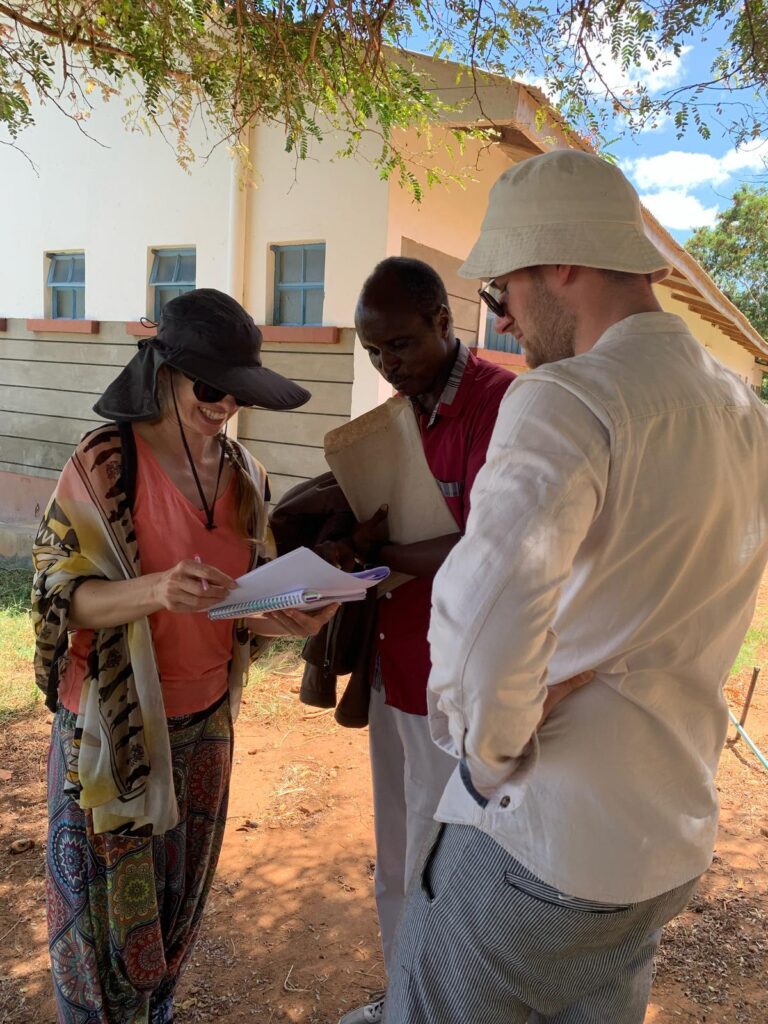
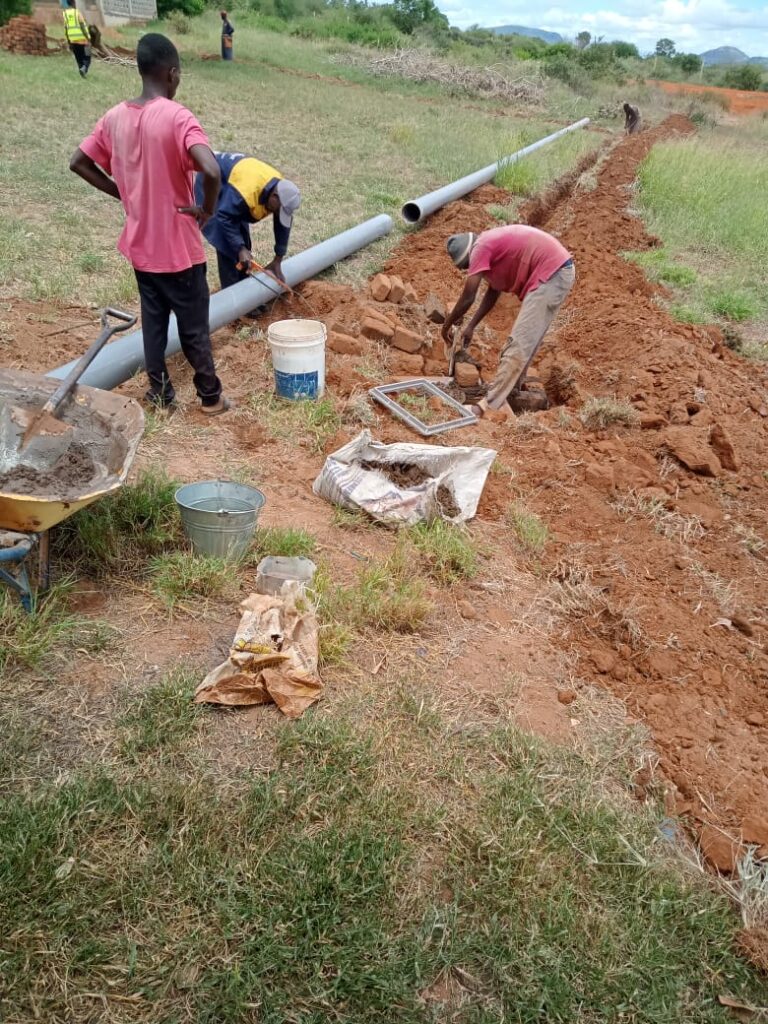
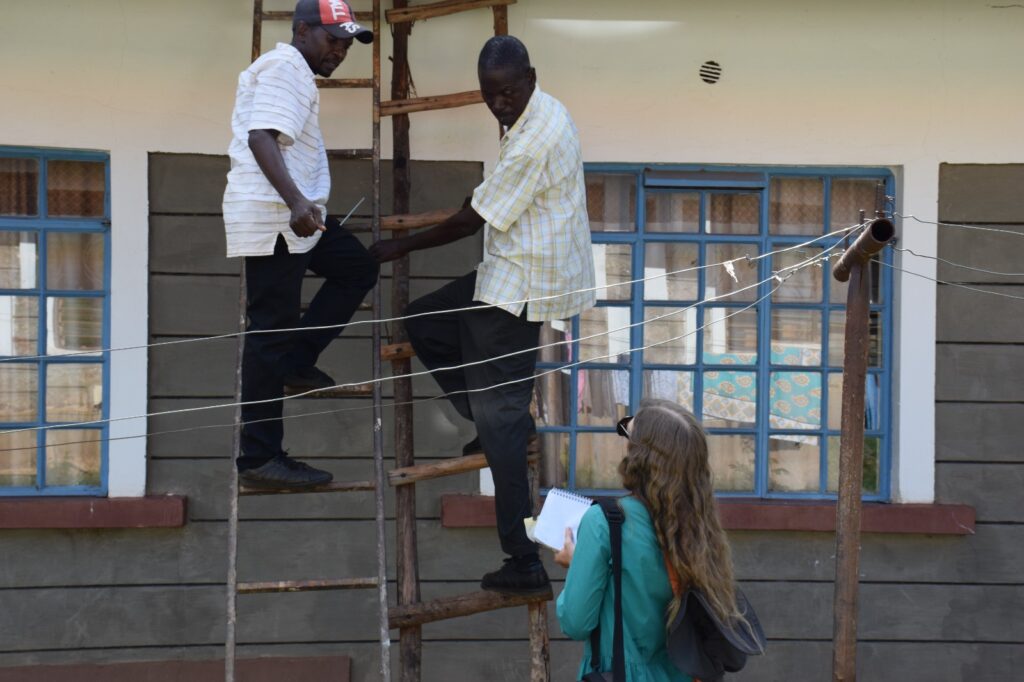
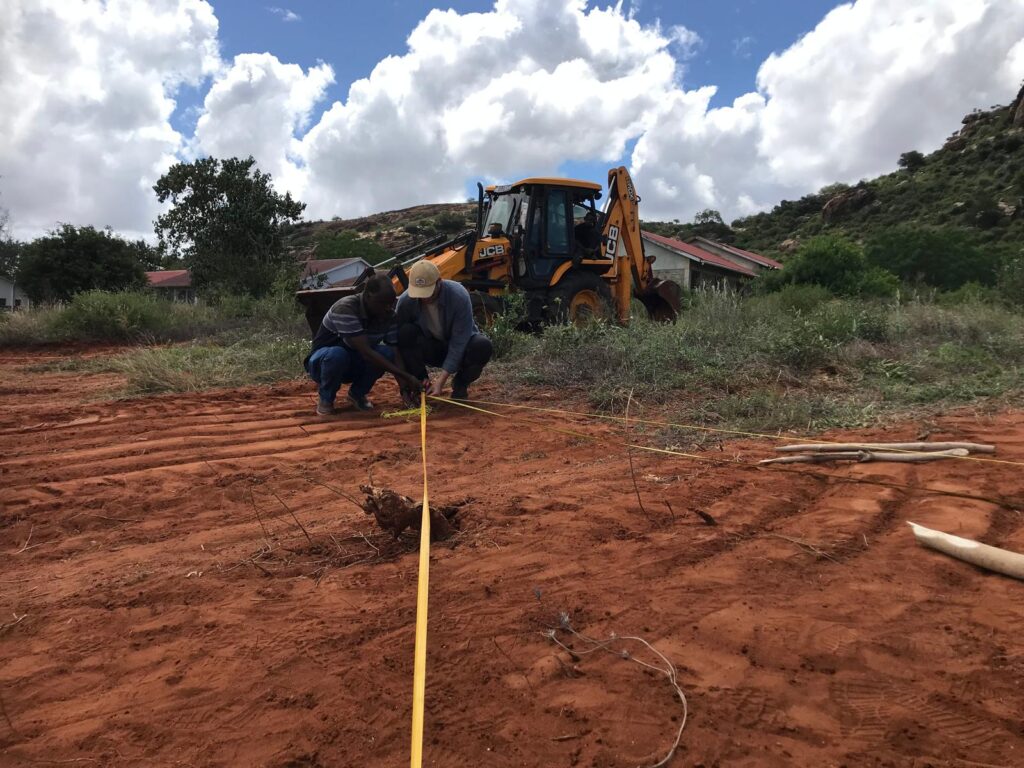
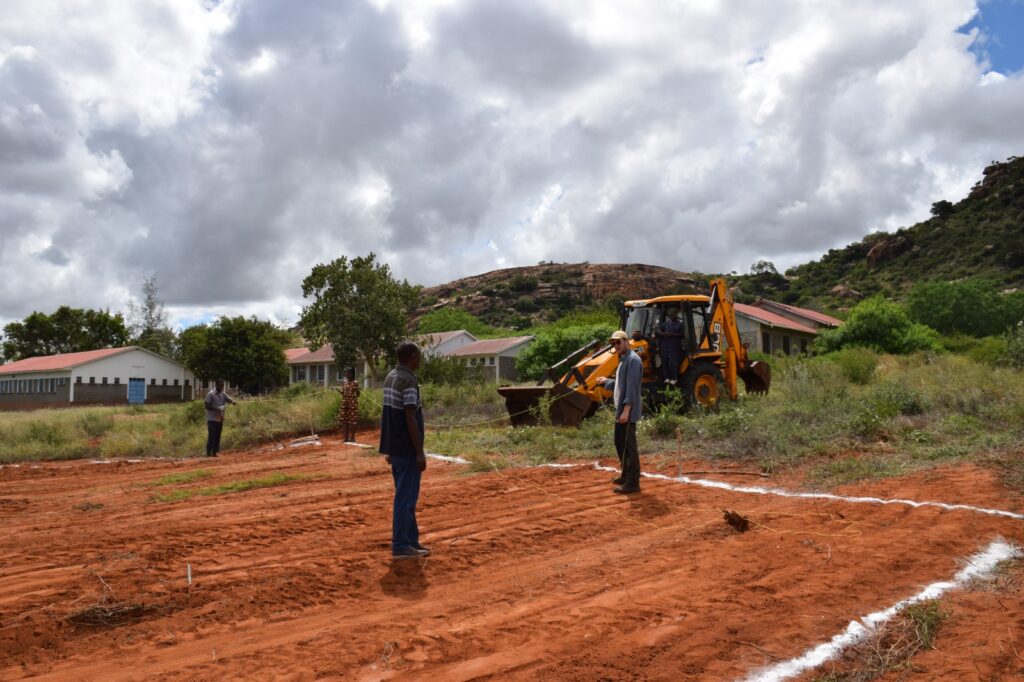
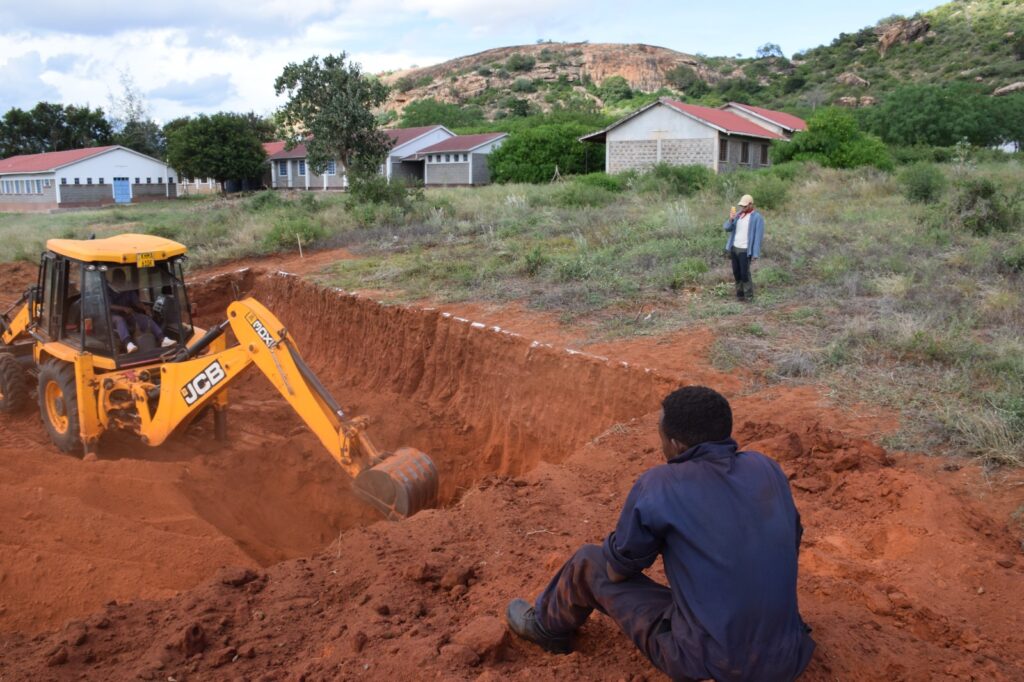
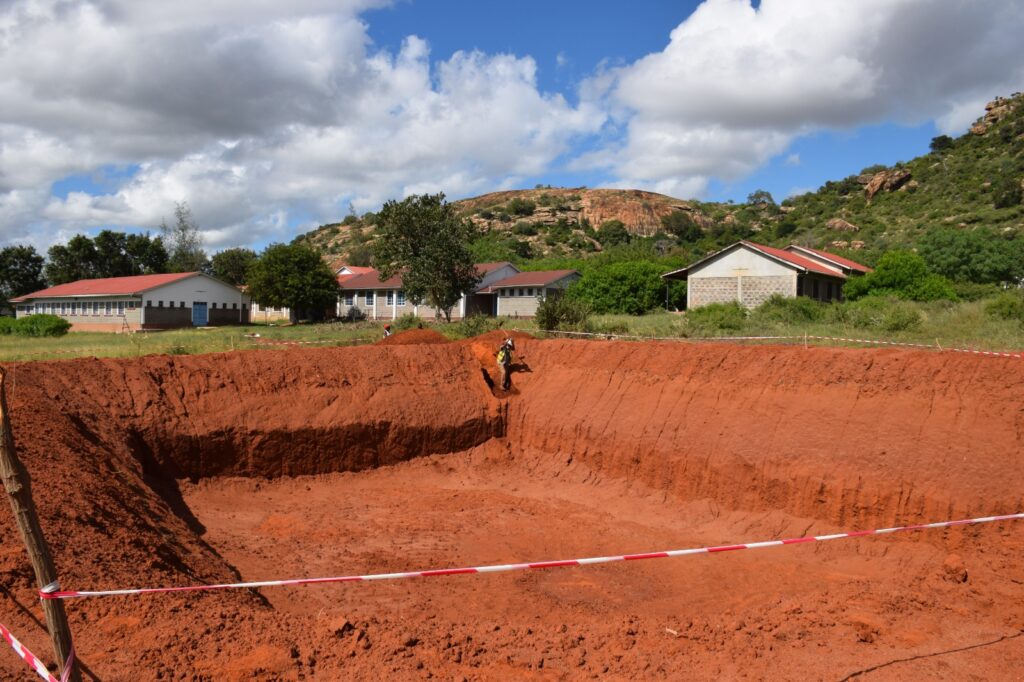
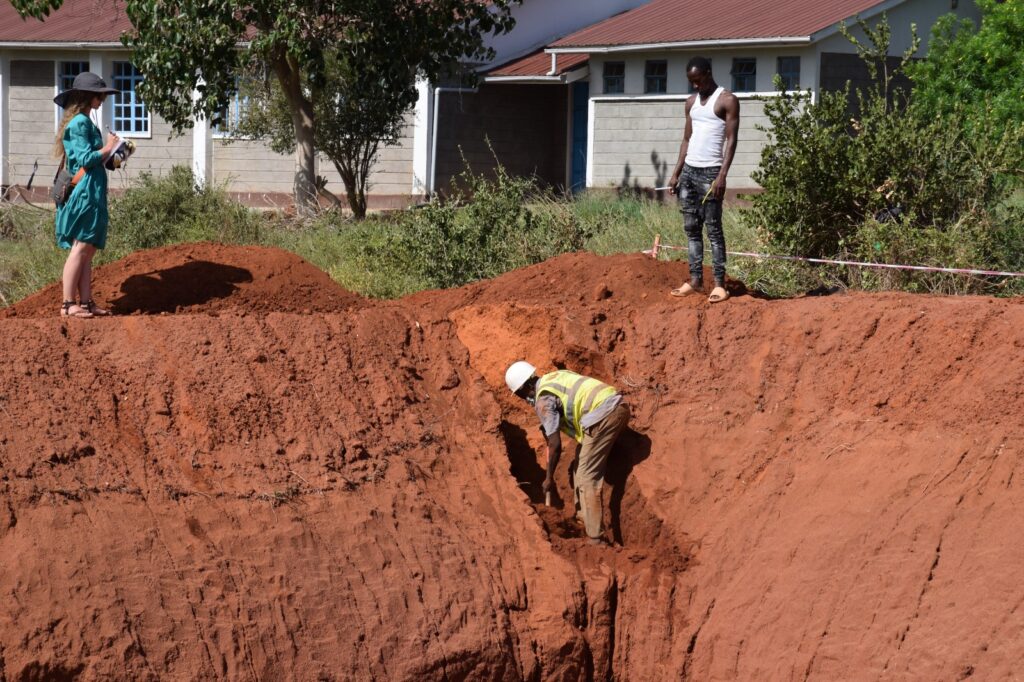
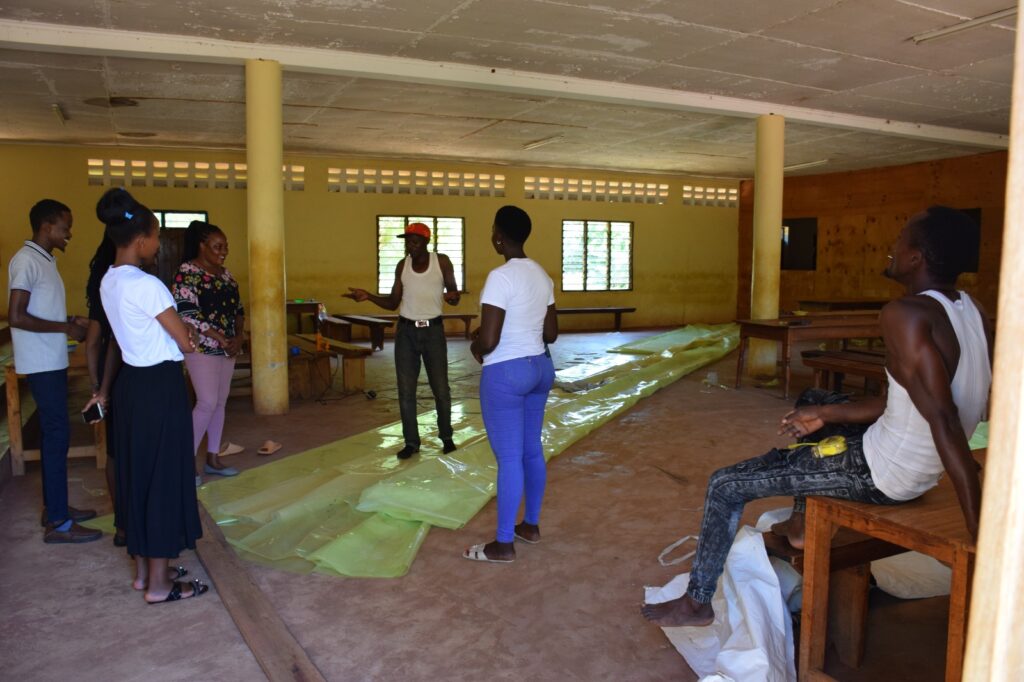
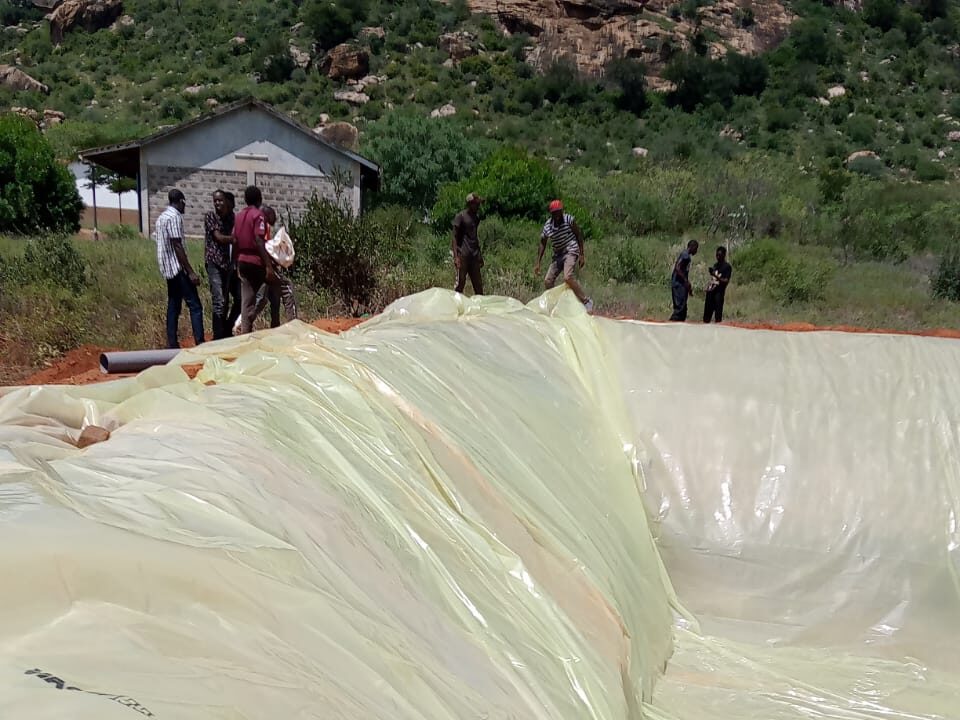
Water bar construction to prevent road erosion:
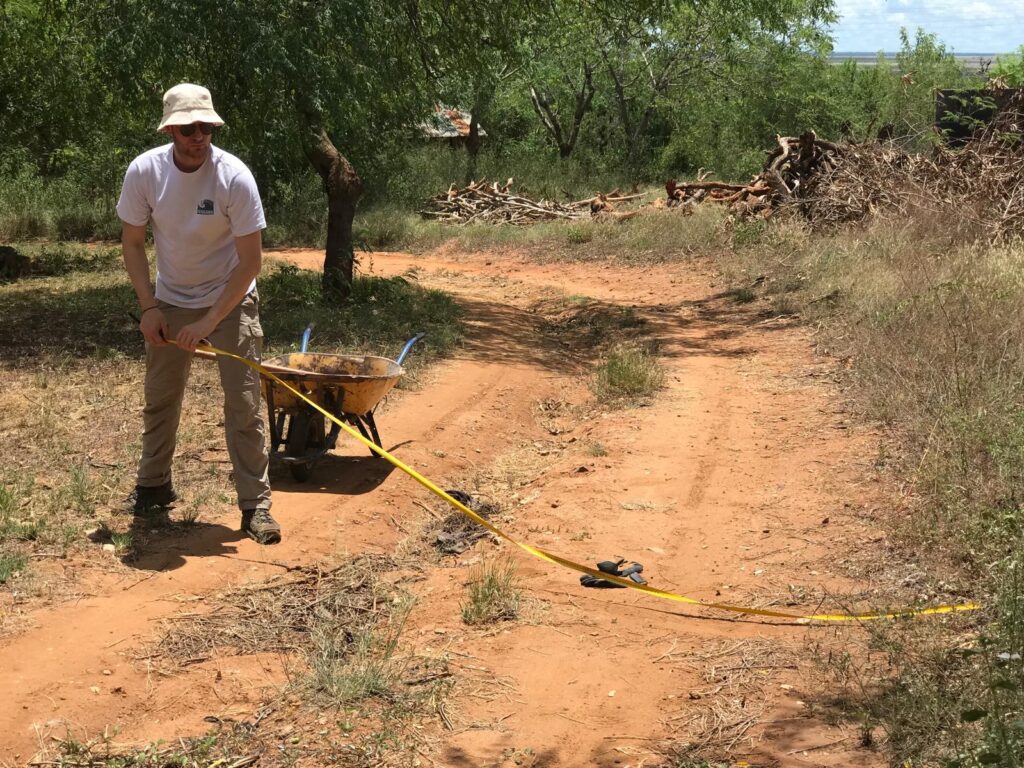
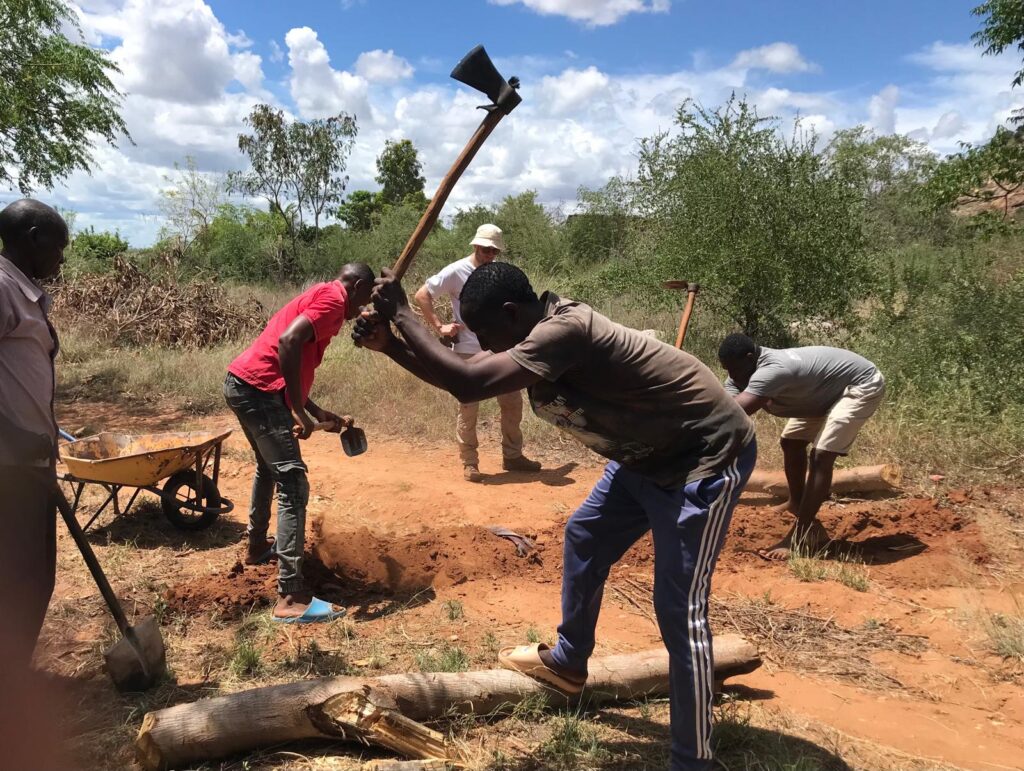
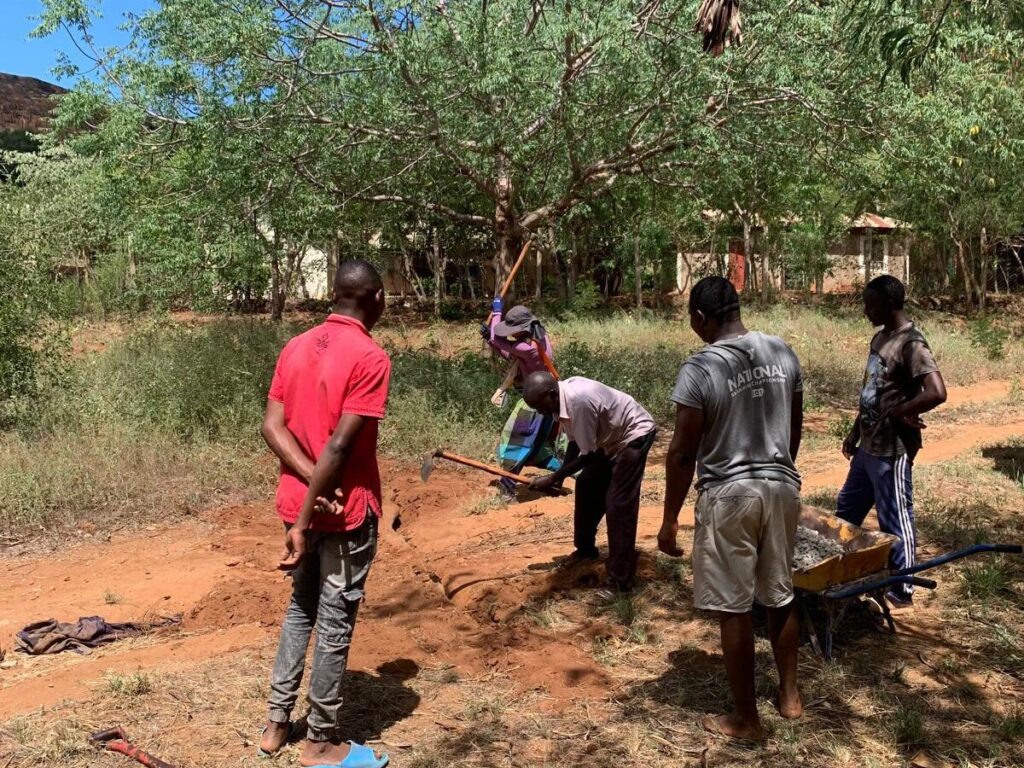
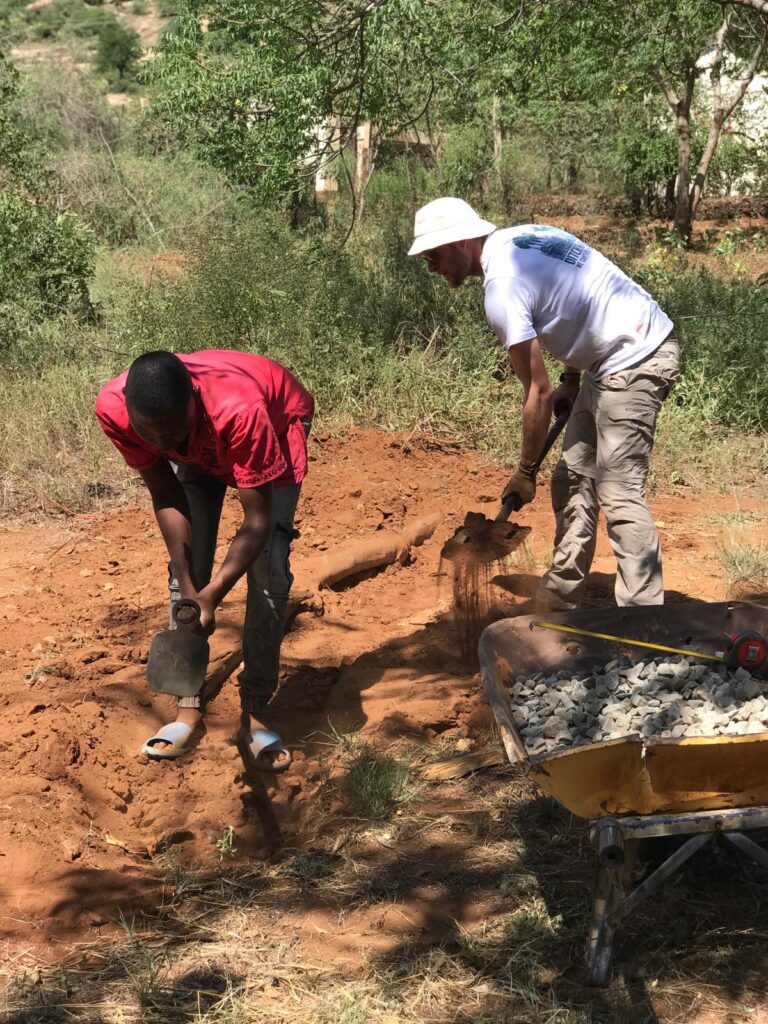
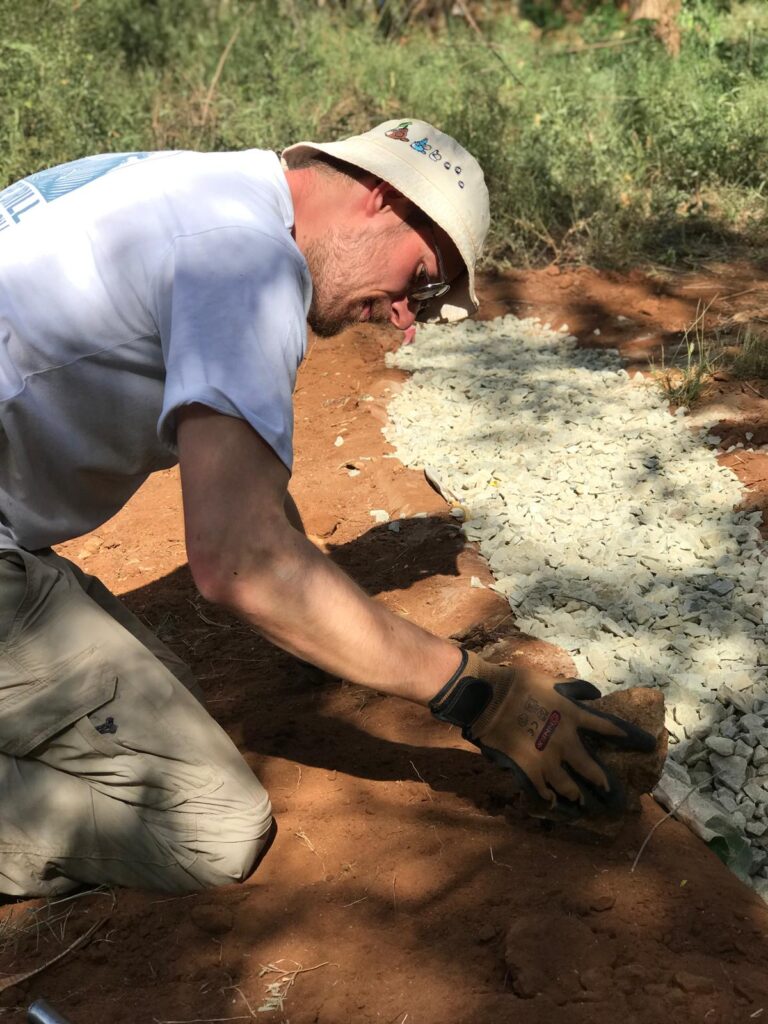
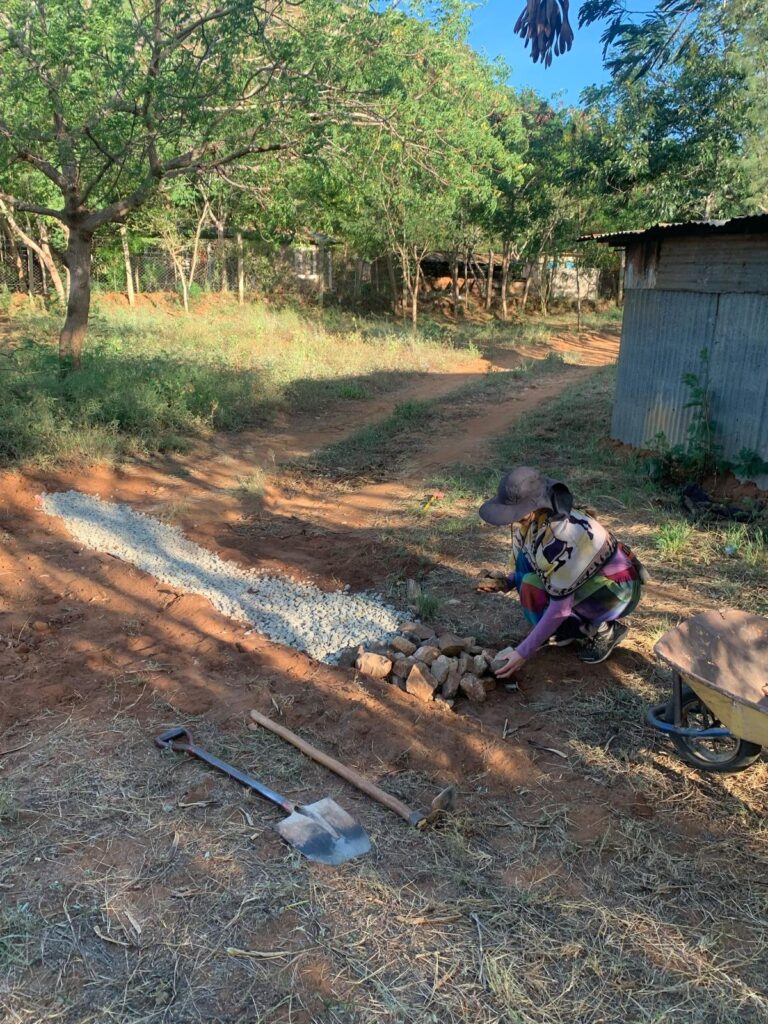
Students at the school:
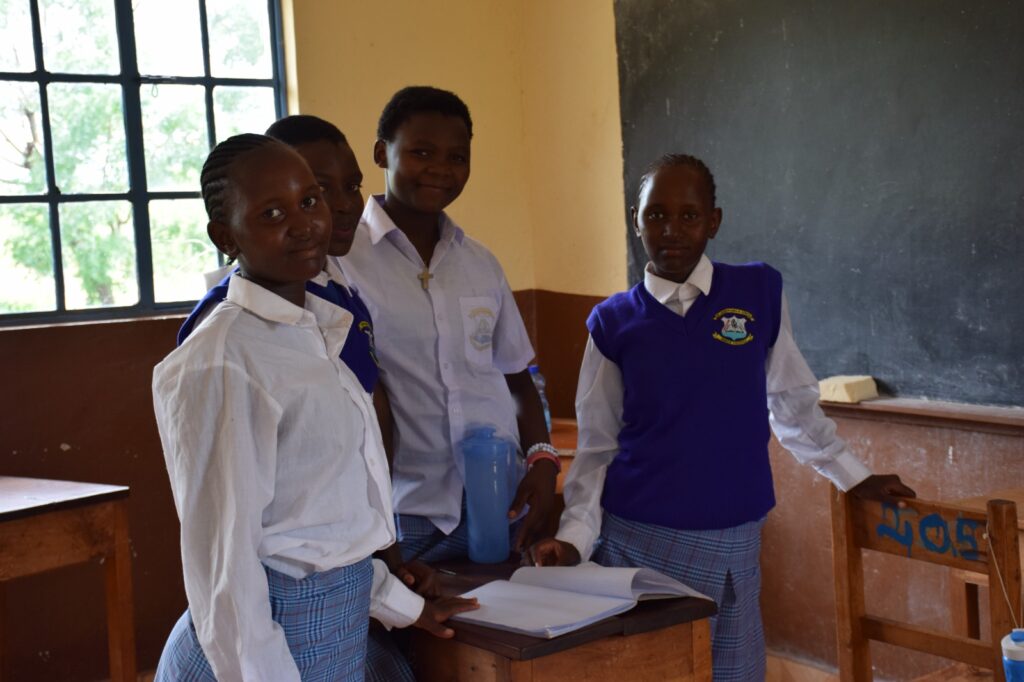
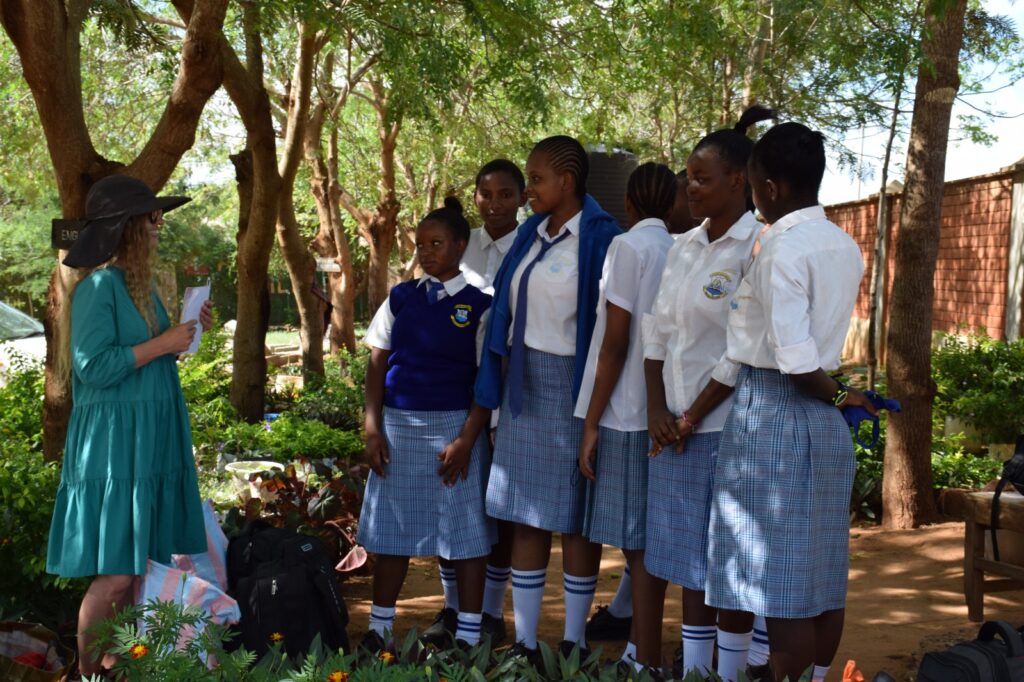
Next Steps
To complete the system and ensure safety and functionality, the following actions are planned:
- Install a protective fence around the pond to ensure student safety
- Install a pump (ideally solar-powered) and piping to the storage tanks near the dormitories
- Erect clear signage at the pond: “Water not suitable for drinking” to prevent misuse
These final installations will be carried out by our local partner ACWECA, with EWB Luxembourg providing coordination and supervision support.
SCOPING MISSION – NOV 2023
Kristina, EWB Luxembourg vice-president , conducted an examination of the school, assessing potential areas for rainwater collection and checking water quality. A visit was also made to a primary school, currently on holiday, and to the top of a hill from which floodwaters often flow during the rainy season, to investigate potential water sources.
Water tests from a dispenser, which provides unboiled tap water to the secondary boarding school, showed contamination with E. coli bacteria.
SPONSORS
- We thank The Emirates Airline Foundation for providing the flight tickets for the exploration mission to Kenya.
- Please note: EWB Luxembourg is an entirely voluntary association. Volunteers are not remunerated and they cover their daily expenses even during the project missions.
